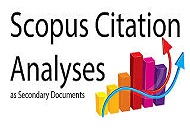Pemecahan Masalah Matematika Melalui Metakognisi Dalam Konteks Sosial
DOI:
https://doi.org/10.33394/jk.v4i1.896Keywords:
Pemecahan Masalah, Metakognisi, Konteks Sosial.Abstract
References
Goos, M., Galbraith, P. & Renshaw. P. 2002. Socially mediated metacognition: creating collaborative zones of proximal development in small group problem solving. Educational Studies in Mathematics, 49, 193-223.
Flavell, J. H. 1976. Metacognitive aspect of problem solving. In. L. B. Resnick (Ed.), The nature of intelligence. Hillsdale, NJ: Erlbaum.
Livingston, J.A. 1997. Metacognition: An Overview; available: http://www.qse.buffalo.edu/fas/schuell/cep564/metacog.htm,
Magierra & Zawojeswki. 2011. Characterizations of Social-Based and Self-Based Context Associated with Student’s Awareness, Evaluation and Regulation of Their Thinking During Small-Group Mathematical Modeling. Journal for Research in Mathematics Education, 42 (5): 486-520.
Ozsoy, Ataman. 2009. The effect of metacognitive strategy training on mathematical problem solving achievement: IEJEE vol 1 issue 2 diakses April 2013.
Panoura, A. dkk. 2005. Young Pupil’s Metacognitive Ability In Mathematics, European Mathematics, Departeman Of Education, University of Cyprus,Cyprus.
Tim SSC Intersolusi. 2011. Olimpiade Matematika SMA. Yogyakarta: Erlangga.
Wilson C & Clarke D. 2004. Towards the Modeling of Mathematical Metacognition. Mathematics Education Research Journal vol 16, No.2, 25-48.
Downloads
Published
How to Cite
Issue
Section
Citation Check
License
License and Publishing AgreementIn submitting the manuscript to the journal, the authors certify that:
- They are authorized by their co-authors to enter into these arrangements.
- The work described has not been formally published before, except in the form of an abstract or as part of a published lecture, review, thesis, or overlay journal.
- That it is not under consideration for publication elsewhere,
- That its publication has been approved by all the author(s) and by the responsible authorities – tacitly or explicitly – of the institutes where the work has been carried out.
- They secure the right to reproduce any material that has already been published or copyrighted elsewhere.
- They agree to the following license and publishing agreement.
Authors who publish with JK agree to the following terms:
- Authors retain copyright and grant the journal right of first publication with the work simultaneously licensed under a Creative Commons Attribution License (CC BY-SA 4.0) that allows others to share the work with an acknowledgment of the work's authorship and initial publication in this journal.Â
- Authors are able to enter into separate, additional contractual arrangements for the non-exclusive distribution of the journal's published version of the work (e.g., post it to an institutional repository or publish it in a book), with an acknowledgment of its initial publication in this journal.
- Authors are permitted and encouraged to post their work online (e.g., in institutional repositories or on their website) prior to and during the submission process, as it can lead to productive exchanges, as well as earlier and greater citation of published work.
- Open Data Commons Attribution License, http://www.opendatacommons.org/licenses/by/1.0/ (default)

This work is licensed under a Creative Commons Attribution-ShareAlike 4.0 International License.








